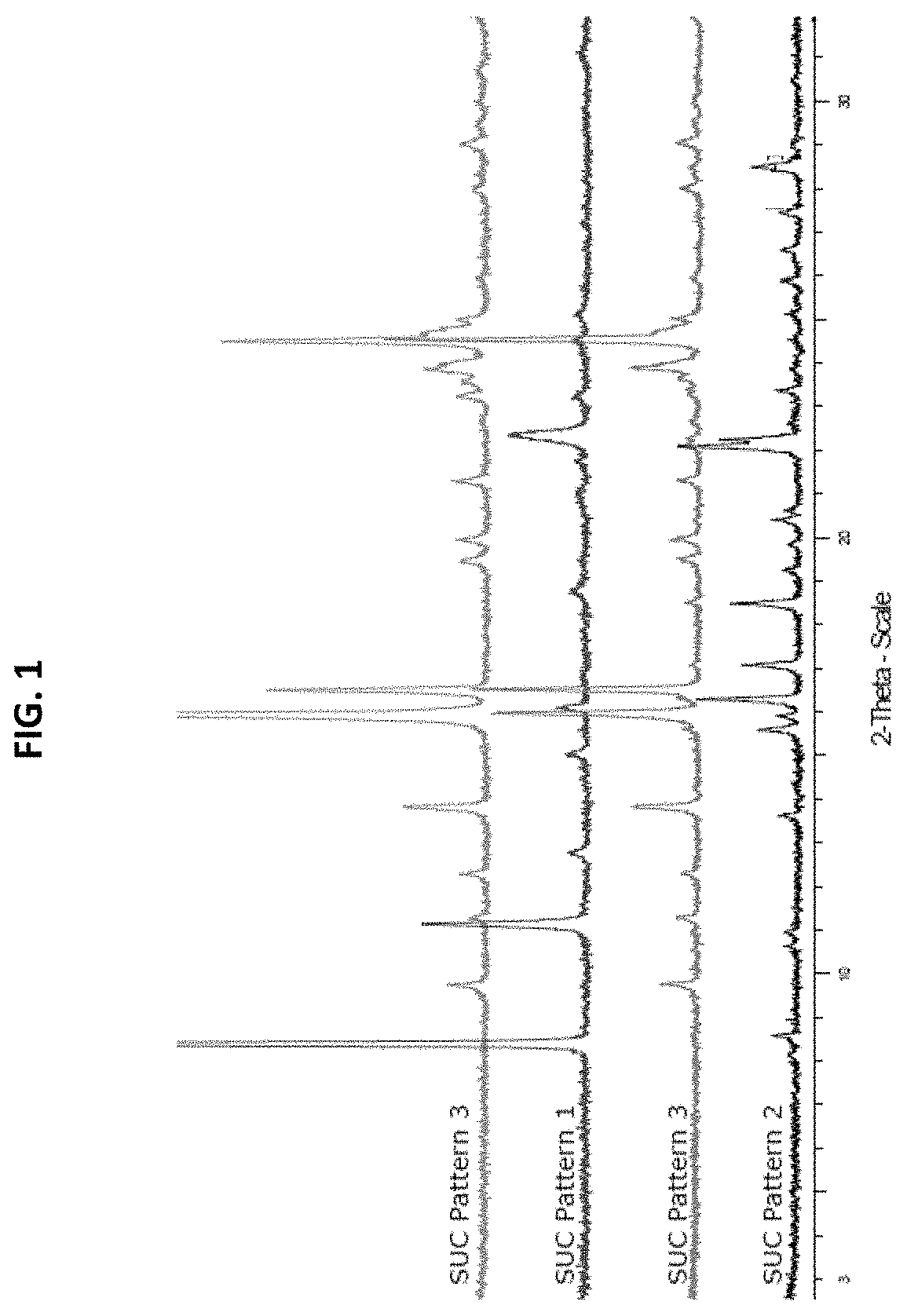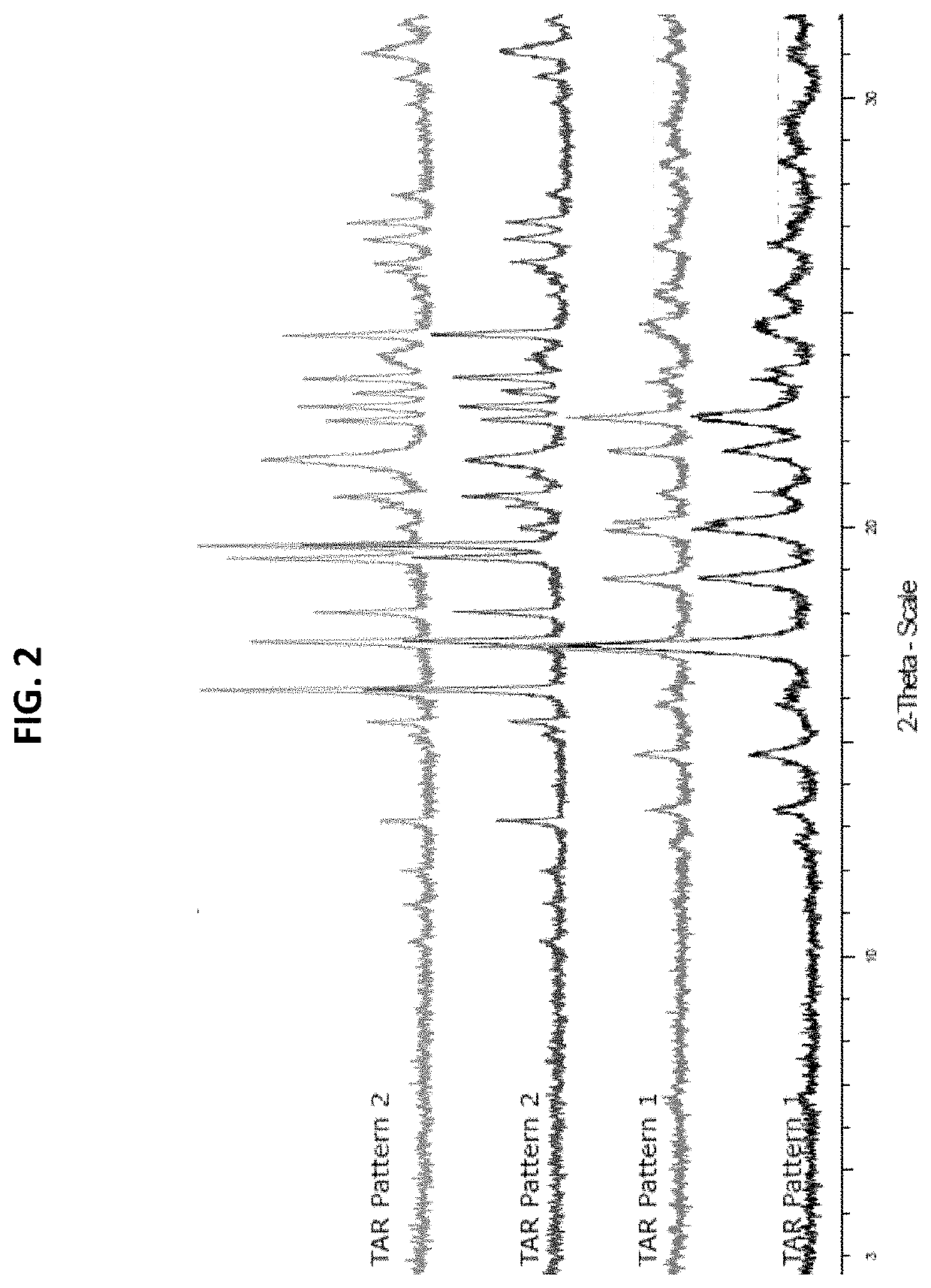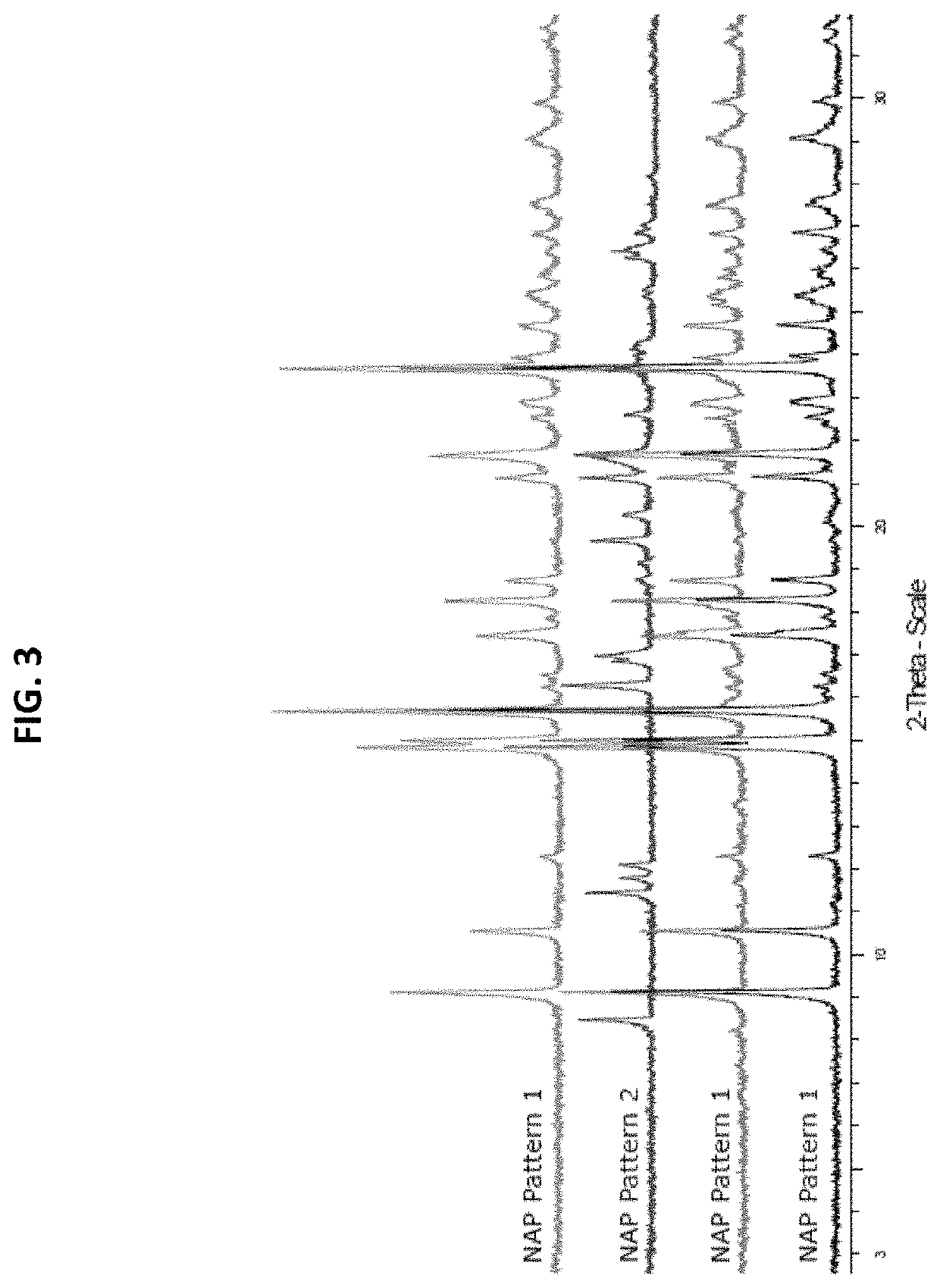Pharmaceutically acceptable salts of psilocin and uses thereof
- Summary
- Abstract
- Description
- Claims
- Application Information
AI Technical Summary
Benefits of technology
Problems solved by technology
Method used
Image
Examples
example 1
ens
[0065]In three solvent systems, dissolved psilocin was separately combined with 24 organic and inorganic acids, see Table 1.
TABLE 1List of acids used in psilocin salt screen#Acid1Hydrobromic acid2Hydrochloric acid31-5-Naphthalene disulphonic acid4Sulphuric acid5p-Toluene sulphonic acid6Methane sulphonic acid7Oxalic acid8Maleic acid9Phosphoric acid10Ketoglutaric acid11L-Tartaric acid12Fumaric acid13Citric acid14L-Malic acid15D-Gluconic acid, 50% in water16Benzoic acid17Succinic acid18Acetic acid19Nicotinic acid20Propionic acid21Pamoic Acid22Adipic Acid23Oleic Acid24Salicylic Acid
[0066]Some combinations did not afford a solid product even after cooling or counter solvent addition. Other combinations produced crystals which were analyzed by X-Ray Powder Diffraction (XPRD). XRPD diffractograms were collected on a Bruker D8 diffractometer using Cu Kα radiation (λ=1.54° A, 40 kV, 40 mA) and a θ-2θ goniometer fitted with a Ge monochromator. The incident beam passes through a 2.0 mm dive...
example 2.100
Example 2. 100 mg Scale Up for Solubility Assessment
[0075]Procedures were adapted from the small scale screen from which each target solid was obtained and characterized using XRPD, 1H-NMR, and HPLC as shown in Table 5. The solvents used were purged with N2 for at least 30 minutes prior to use. Obtained solids were dried in a vacuum oven at room temperature for 2 hours.
[0076]Psilocin salicylate was made by combining a 100 mg of psilocin free base in a 4 mL vial with 30 volumes of acetone at 25° C. To this solution, 1.1 molar equivalents of salicylic acid (1 M in THF) was added. The crystallization was performed by cooling the solution to 5° C. at a rate of 0.25° C. / min and held 5° C. for 2 hours at which point an additional 0.5 mole equivalents of salicylic acid was added. The crystallization solution was held at 5° C. for another 10 hours, after which, 10 volumes of heptane were added to the clear solution and stirring was continued for a further 24 hours. The white suspension was ...
example 3
y of Psilocin Salts in Saline
[0088]A sufficient amount of sample was suspended in 0.5 mL of media for a maximum anticipated concentration of 10 mg / mL of psilocin free base. The resulting suspensions were then shaken at 25° C. and 750 rpm for 5 hours. After equilibration, the appearance was noted, and the pH of the saturated solution was measured. Samples were then centrifuged for 2 min at 13,400 rpm, before dilution with buffer as appropriate.
[0089]Quantitation was performed by HPLC with reference to a standard solution of approximately 0.15 mg / mL. Different volumes of the standard, diluted, and undiluted sample solutions were injected. The solubility was calculated using the peak areas determined by integration of the peak found at the same retention time as the principal peak in the standard injection.
[0090]Solid residue from samples that did not fully dissolve were analyzed by XRPD to assess whether they changed form. The appearance of each sample, pH after 5 hours, XRPD of any r...
PUM
| Property | Measurement | Unit |
|---|---|---|
| concentration | aaaaa | aaaaa |
| concentration | aaaaa | aaaaa |
| concentration | aaaaa | aaaaa |
Abstract
Description
Claims
Application Information
 Login to View More
Login to View More - R&D
- Intellectual Property
- Life Sciences
- Materials
- Tech Scout
- Unparalleled Data Quality
- Higher Quality Content
- 60% Fewer Hallucinations
Browse by: Latest US Patents, China's latest patents, Technical Efficacy Thesaurus, Application Domain, Technology Topic, Popular Technical Reports.
© 2025 PatSnap. All rights reserved.Legal|Privacy policy|Modern Slavery Act Transparency Statement|Sitemap|About US| Contact US: help@patsnap.com



